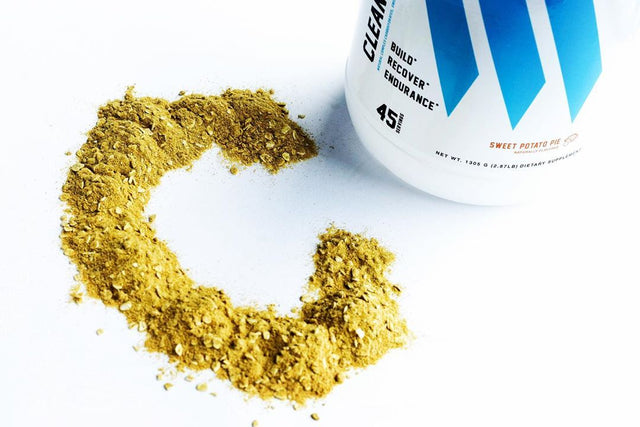You’ve probably heard someone refer to food being high on the Glycemic Index (GI). The Glycemic Index is a ranking of carbohydrate foods, and how they affect blood sugar levels. Carbohydrates with a low GI value are more slowly digested, causing a stable and slower rise in blood glucose, and a rise in insulin levels. High glycemic foods cause a spike in blood sugar and insulin levels and can lead to unwanted weight gain, and energy crash. Athletes need a steady supply of energy and knowing which foods provide that energy is important for athletic performance and outcomes.
How Does The Glycemic Index Work?
The glycemic index determines the response in blood sugar when you consume 50g of carbohydrates. It’s a relative measure, determined against specific foods and monitored on a bell curve. The more glucose that reaches the bloodstream within the first three hours of consumption, the higher the value on the GI for that particular food. Therefore, carbohydrates can be considered and grouped into either simple carbohydrates ‘High Glycemic” foods, or “Low Glycemic” which are complex carbohydrates.
Low Glycemic Foods
Less processed and higher-fiber foods are generally lower on the glycemic index. These are known as complex carbohydrates and the preferred type of carbohydrates to maintain optimal body composition. Complex carbohydrates or low glycemic foods, take longer to digest, causing increased satiety, and a longer sustained release of energy. This is also why Clean Carbs are the preferred source of carbohydrates for athletes.
Below you will find a list of our most preferred low glycemic carbohydrates that will help optimize body composition and sustained energy levels
- Clean Carbs
- Legumes
- Whole grains
- Vegetables
- Fruit
- Brown rice
- Oats
- Bran
- Yams
- Sweet Potatoes
Low glycemic foods are the preferred fuel source for athletes, since they have a slower absorption rate and lower insulin response. This means low GI foods supply a steady flow of energy, alleviating hunger, and controlling appetite. This is especially important for long-distance endurance athletes.
RELATED ARTICLE 6 Incredible Clean Carb Sources To Build More Muscle
High Glycemic Foods
High glycemic foods are normally processed and full of refined sugars that are quickly absorbed and cause a high insulin response or spike. These foods include
- Candy
- Bagels
- Baked goods
- Breakfast cereal
- White breads
- Carb Supplements (Dextrose, Maltodextrin, Cyclic Dextrin)
- Soda
- White Rice
- Pasta
- Potatoes
Often times, athletes will eat high glycemic foods before training. However, eating these types of foods, can actually lower blood glucose levels during training periods, and result in fatigue. High glycemic foods should be consumed, if they are consumed, after training. Adhering to specific nutrient timing is crucial to optimize composition and performance training goals. Insulin helps drive nutrients (especially carbohydrates) into starved and glycogen depleted muscle tissue. This can greatly improve recovery times.
RELATED ARTICLE Post Workout Nutrition: What & When To Eat For The Best Results
Other Factors That Affect GI
While GI can definitely help in finding the right foods to include in your diet, GI does not tell the whole story. There are several other factors to consider when eating low or high glycemic foods, that affect absorption and insulin response.
ACTIVITY LEVEL: One of the many factors that determine how quickly our food is converted into glucose, is activity level and the amount of max-effort and force you exerted during your workout. Glycogen is your body’s main fuel source and depletes rather quickly when being physically active.
FOOD PREPARATION: Another factor is food preparation. When is the last time you ate white bread by itself? Exactly, never. Protein, fat, and fiber all have a determination on the absorption rate of blood glucose and the conversion to glycogen, therefore, eating more foods with that particular carbohydrates will change the GI.
PROCESSING: The last factor that alters the GI is how processed food is and what ingredients they use. Food additives to make them instantized, sweeter, and gelatinized will result in higher glycemic food. This is why it’s crucial to pay attention to food labels, in particular, the other ingredients. The current nutrition label does not distinguish between added sugars and naturally occurring sugars, which is another reason you should be paying attention to the ingredients list, to find out what you’re really eating.
Sugar likes to hide and when added to products they often come up in the ingredients list with a multitude of different aliases, such as
- Corn syrup
- Dextrose
- Molasses
- Sucrose
- Turbinado
- Glucose
- Lactose
- High fructose corn syrup
- Brown rice syrup
- Barley malt
RELATED ARTICLE How To Read A Nutrition Label – The Ultimate Guide To Determining The Right Food Choice
Glycemic Index Calculation
GI is a relative measure, which is determined against a specific carbohydrate. 50g of carbohydrates from pure glucose is determined with a value of 100 on the glycemic index. Each food’s GI score is calculated relative to this value of 100. The problem with determining this value, is that the score can be manipulated by the certain type of sugar, such as fructose, the naturally occurring sugar found in fruit. Foods with large amounts of fructose, such as a banana tend to have a lower glycemic score. This is because fructose does not raise blood glucose levels as immediately. The second issue with calculation is that the GI is based upon a certain amount of carbohydrates, not a standardized amount of food. For example, to calculate the glycemic index of candy, we would only need a small amount, as compared to a much larger amount of sweet potatoes, or carrots (fructose has a slower insulin response) yet are still high in sugar.
Glycemic Load is another more realistic measure of blood glucose, as it is equal to the glycemic index of a good, multiplied by the number of grams of carbohydrates in the serving. While this provides a better determination of glucose absorption, glycemic load is still limited as it does not take into account other foods and their effects on blood sugar.
Glycemic Index: Takeaway
The glycemic index is a great tool to help determine what foods you should include in your diet, to help control and stabilize blood glucose levels, providing a steady supply of energy. Lower glycemic foods will help prevent low blood sugar before training, avoiding fatigue and providing fuel for athletes. Higher glycemic foods will help transport nutrients into fatigued muscles, replenishing glycogen levels after training. Therefore, identifying the right foods to include in your diet and the timing, is crucial to optimizing your performance and goals.
Looking for the best clean carb source to build more muscle, shred body fat, and improve athletic performance?
SWOLVERINE IS AN ENDURANCE ATHLETE AND ACTIVE LIFESTYLE BRAND. MADE FOR THE ELITE ATHLETE, AND THE STRONG-WILLED OUR PRODUCTS WERE DESIGNED TO FUEL YOUR ATHLETIC PERFORMANCE. WE PERFORM WHEN YOU PERFORM.
We believe that everyone can optimize not only their athletic performance but their human potential. The way we believe we can optimize performance is through transparency, clinically effective doses, and clinically proven ingredients with evidence-based outcomes. We provide the nutrients you need to power your active lifestyle.














